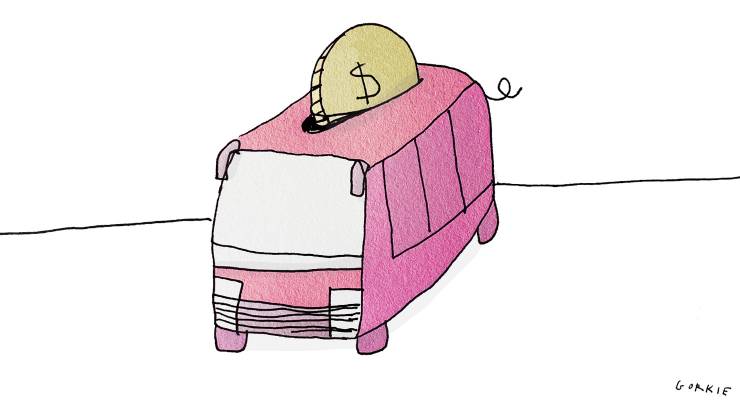
As we know, according to the Reserve Bank, Treasury, big business and its media cheerleaders, there’s no link between firms lifting profits and inflation — it’s all down to those rotten workers (especially the lowest-paid, most precarious workers in the gig economy, the target of big business’ hysterical campaign against Tony Burke’s proposed industrial relations reforms).
Which makes yesterday’s results from bus operator Kelsian Group somewhat puzzling. In its 2022-23 profit release to the ASX, the company reported an inflation-beating 9.2% rise in revenue (6% was the rise in the Consumer Price Index in the year to June).
How? Over to Kelsian: “Contract indexation mechanisms effectively hedge inflation for the majority of urban bus businesses” and “cost base pressures are temporary and either well hedged or can be passed on to end customers.”
Customers being people who use the company’s transport services and who are usually those who can’t afford private cars and are forced to pay more. Or, as Kelsian says, “the growth in revenue reflects the essential nature of transport operations.”
That is, Kelsian’s “customers” have no other option than to use Kelsian’s services. But the real villains here are state governments (usually ALP) that allow indexed contracts that automatically push up prices, thus maintaining the company’s profits.
The standard response from economists is that if demand is strong enough for companies to pass on cost increases like this, that shows that the problem is households have too much money and need interest rate rises to smash their willingness to buy. But if you’re stuck in an outer suburb without a car and there’s no alternative to catching a Kelsian bus to work, all the rate rises in the world won’t make a difference. And Kelsian will happily maintain its profits.
In fact, across the year the company didn’t merely maintain its profits: it increased its underlying EBIT and underlying net profit by 5.5% and 4.3% respectively. And Kelsian is going to make a bundle in Sydney, according to the earnings release. It said on Wednesday that it is “set to become Sydney’s largest metropolitan public bus operator, with signing of two new 7+ year contracts (total new contracted value of ~$1.3bn over 7 years).”
Lucky profits aren’t driving inflation — think how bad things would be if they were…









Yep,
Standard Neo lib arguments. Rip off the undeserving poor and enjoy the porfits.
Ahem, Bernard usually writes very well researched articles which hit the mark.
Not so this time sorry. Please fact check your numbers. The figures you are referring to are group numbers not the Australian bus business. The strong rebound was due to international tourism rebounding, not inflation linked contracts as you assert.
The Aus bus business grew revenues by 5.1 percent but operating profit actually fell due to labour shortages.
Page 18 of the investor presentation has the details.
The context of this piece is just a bizarre flat-out lie: Kelsian’s bus operations in Australia are government franchises, which means that the government pays them a certain amount of $ per year to run the buses and collect fares, but the fares go directly to the government.
Kelsian makes money if it runs the timetable and gets docked money if it fails to run the timetable – it doesn’t win or lose anything if fares or passenger numbers go up or down.
Bit of an obvious one. An underlying issue we are having in the new economics Ie of the past 50 or less years. When government is the ultimate owner of more and more business. Everyone you name it banks airlines bus companies health prisons if the cost goes up then the charges just go up. I as a business man must compete it is a very different equation when a provider must compete to establish margin. Therein lies the rub. As government owns more and more business the only people we can push down is the wage earners. The most important wage earners are the ones on the bottom rung of the wage earning ladder. Because they cannot take care of themselves and there are a lot of them. If we live in a country like Australia we consider their quality of life to be important.